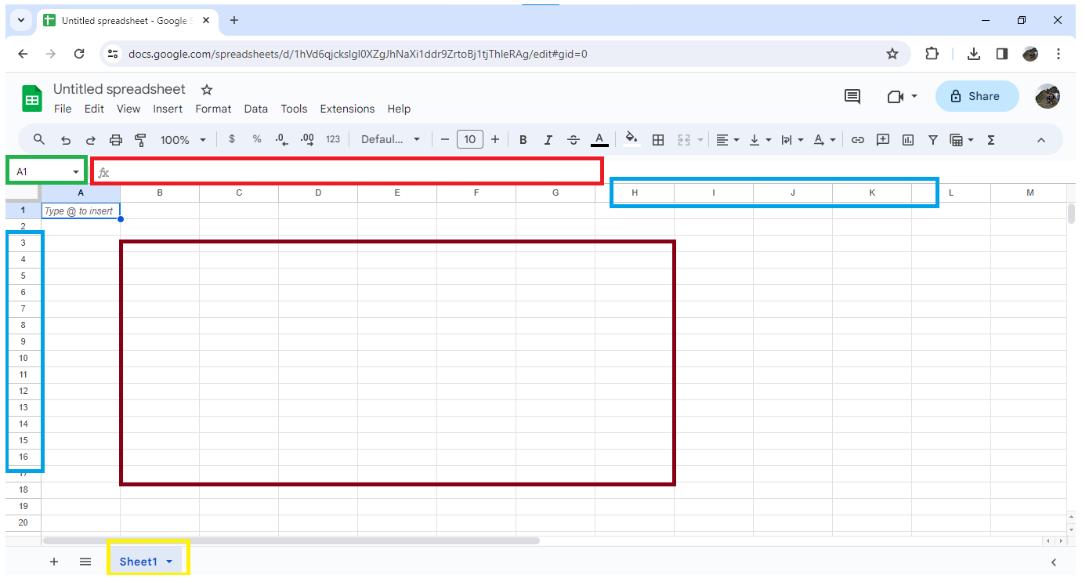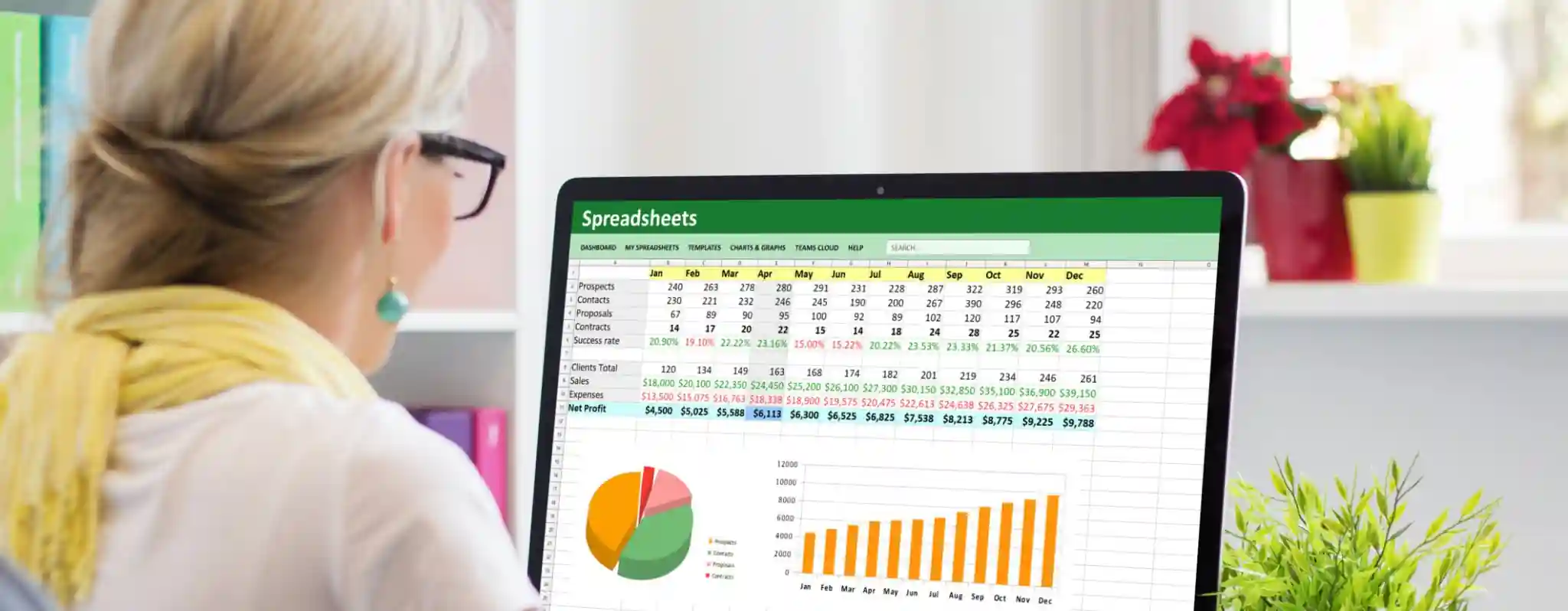Google Sheets: The Cloud Spreadsheet Revolution
Data drives decisions—but only if you can harness it effectively. Google Sheets has become the go-to cloud-based spreadsheet solution for over 2 billion Google Workspace users, transforming how teams collaborate on data analysis.
Unlike traditional spreadsheet tools, Sheets offers real-time collaboration, automatic cloud saving, and seamless integration with other Google apps. Whether you're tracking sales, analyzing survey results, or managing projects, this powerful tool adapts to your needs.
📌 Key Takeaway:
Google Sheets reduces version control headaches by letting multiple users edit simultaneously while maintaining a complete revision history of all changes.
Why Professionals Choose Google Sheets
- Access anywhere: Work on spreadsheets from any device with internet access
- No more "final_final" files: Single source of truth with live updates
- Powerful formulas: From basic SUM to advanced VLOOKUP functions
- Automation potential: Script repetitive tasks with Google Apps Script
- Cost-effective: Free for personal use with affordable business plans
Power Features That Set Google Sheets Apart
While most spreadsheet tools handle numbers, Google Sheets transforms data collaboration. Here's what makes it indispensable for modern teams:
✨ Real-Time Collaboration
Watch changes appear live as teammates work simultaneously. The built-in chat feature lets you discuss edits without leaving the sheet—perfect for remote teams.
☁️ Cloud-Based Freedom
Access sheets from any device—your work automatically saves to Google Drive. No more "file not found" errors when switching between laptop and mobile.
🔄 Excel Compatibility
Import/export .xlsx files seamlessly. Sheets preserves formulas and formatting during conversion—ideal for clients who insist on Excel.
📊 Advanced Visualization
Create dynamic charts that update automatically. From heat maps to sparklines, turn raw data into compelling visuals in 3 clicks.
Navigating the Google Sheets Workspace

Core Components
- Menu Bar: Offers access to file operations, editing tools, view options, insert functions, format settings, data manipulation, tools, and help.
- Toolbars: Quick access to commonly used functions like undo/redo, formatting options, and data tools.
- Row Headers: Vertical headers labeling each row with a number.
- Column Headers: Horizontal headers labeling each column with a letter.
- Sheet Tabs: Located at the bottom, allowing users to navigate between different sheets within the same spreadsheet.
- Formula Bar: Displays and allows direct editing of the formula used in the active cell.
Pro Tips
- Double-click a cell's edge to auto-resize columns/rows.
- Press Ctrl+Space to select entire columns.
- Use the Chat Feature to communicate with collaborators in real-time.
- Click the icon to add notes to cells.
- Type
=to instantly access all 400+ functions.
💡 Did You Know?
The Explore button (bottom-right) uses AI to generate automatic insights from your data. Try it with sales figures—it'll suggest trends and charts!
Creating and Managing Spreadsheets Like a Pro
🚀 Starting New Projects
Click the + Blank button in Google Drive or type sheets.new in your browser—this secret URL instantly creates a fresh spreadsheet.
Pro Organization Tip:
Use color-coded sheet tabs (right-click tab > Change color) to separate data types—like green for finances, blue for inventory.
📤 Import/Export Mastery
File > Import handles:
- Excel files (.xlsx)
- CSV data (perfect for database exports)
- PDFs (extracts tables automatically)
Export shortcuts: Use Ctrl+Shift+S to save as Excel instantly.
🔧 Essential Data Tools
- Filters: Click the funnel icon to sort columns
- Conditional Formatting: Auto-highlight key values
- Pivot Tables: Data > Pivot table for quick summaries
Try selecting data and pressing Alt+Shift+7 to apply currency formatting.
Must-Know Google Sheets Formulas
These 10 formulas handle 90% of spreadsheet tasks. Bookmark this section!
| Formula | What It Does | Real-World Example |
|---|---|---|
| =SUM(A1:A10) | Adds values in a range | Total quarterly sales |
| =AVERAGE(B1:B10) | Calculates the average | Average monthly expenses |
| =MAX(C1:C10) | Finds the highest value | Identify the top score |
| =MIN(D1:D10) | Finds the lowest value | Find the smallest order amount |
| =COUNT(E1:E10) | Counts cells with numbers | Count total sales transactions |
| =IF(F1>100, "High", "Low") | Performs conditional logic | Flag high or low sales |
| =VLOOKUP("Item",A1:B10,2,FALSE) | Finds matching data | Pull product prices from inventory |
| =CONCATENATE(G1, " ", H1) | Combines text values | Join first and last names |
| =LEFT(I1, 3) | Extracts the first 3 characters | Get area codes from phone numbers |
| =TRIM(J1) | Removes extra spaces | Clean messy data |
| =COUNTIF(K1:K10, ">100") | Counts cells meeting criteria | Track high-value transactions |
| =SUMIF(L1:L10, "<100", L1:L10) | Sums cells meeting criteria | Sum low-cost orders |
💬 Final Thought
The best spreadsheet users aren't math experts—they're problem solvers. With these Google Sheets skills, you're now equipped to turn data chaos into clarity, whether you're tracking budgets, analyzing surveys, or managing team projects.
Expand Your Knowledge
Dive deeper into technology, productivity, and leadership with these valuable reads:
- Google Drive Essentials – Learn how to efficiently store, organize, and collaborate using Google Drive.
- Principle #5 – The Staff of Direction – Discover leadership strategies to guide and empower your team.
- Understanding IT – Build a strong foundation in Information Technology essentials.
- Specialist vs Generalist – 85% of companies now seek hybrid talent. Discover whether to specialize or generalize in your career, with actionable strategies to become a T-shaped professional and future-proof your skills.
Test Your Knowledge
Think you've mastered the basics? Take our Assessment on Google Sheets to evaluate your understanding and enhance your skills.

No comments yet. Be the first to share your thoughts!